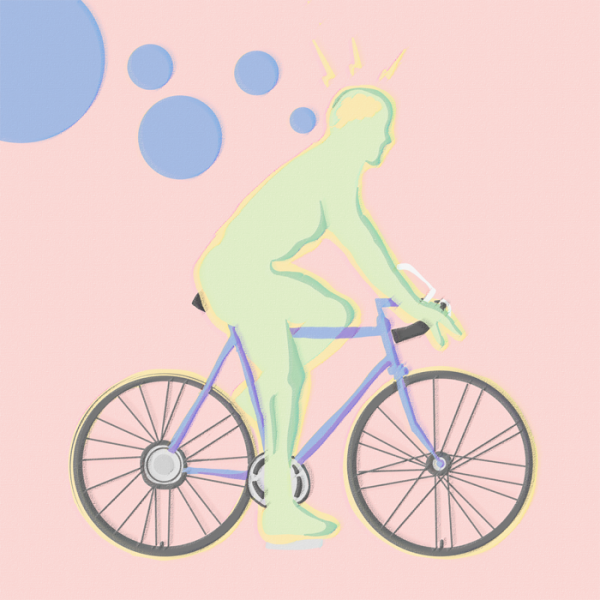While it might be difficult to consciously visualize how to balance on a bike or catch a ball, a recent study at McGill sheds light on the role of exercise in motor memory, or learning how to perform a skill instinctively. Individuals normally pick up motor memory through repetition, but exercise can reportedly speed up this process, with possible implications for future physical therapy regimens.
Using a visuo-motor video game in which participants tracked a moving target by adjusting grip force, researchers found that those who had exercised immediately after learning a new skill performed better in a skill level assessment than those who had not. Study co-author Marie-Hélène Boudrias, assistant professor at the McGill School of Physical and Occupational Therapy, believes that exercise consolidates motor skill memories by stimulating circulation.
“[Improved motor skill retention after exercise] is due to an increase in metabolism,” Boudrias said. “You can also think about it as increased blood flow, increased glycolysis, possibly bringing fresh blood to parts of the brain. The exercise change[s] the way your brain consolidates the memory of what you’ve just learned.”
Although exercise decreased the brain activity of participants overall, brain signals were more concentrated in areas of the brain dedicated to learning the motor task, which meant that the brain was more efficient in delegating tasks to relevant neural circuits.
“It seems that exercise maximizes the resources you’re dedicating into something you’ve just learned,” Boudrias said.
Boudrias mentioned that her co-author, Assistant Professor Marc Roig, is currently delving further into the medical applications of their research. The results of the study suggest that, for people who have suffered a stroke, incorporating exercise into therapy sessions could help them regain lost motor skills. Strokes can severely damage brain function and quality of life, and patients are in need of motor memory, as they may have trouble grasping objects or walking. It often takes around six months of physical therapy to regain these capabilities.
“Let’s say there’s an exercise program or rehabilitation program where you’re relearning how to do things such as walking, or keeping your balance,” Boudrias said. “If [patients] could do a short bout of exercise after their session, they could potentially retain better what they have just learned.”
In addition to implications for stroke rehabilitation specifically, the study also highlighted an important link between sleep and memory. Regardless of whether or not they exercised, participants best performed the newly-learned motor skill after a good night’s sleep.
“The motor skill retention was not better eight hours after the exercise, unlike [after] 24 hours [where participants had the chance to sleep],” Boudrias said. “Sleep helps consolidate this memory [so that], 24 hours later, you’re better at extracting this memory.”
For students, this means that getting a good night’s sleep is actually better than pulling an all-nighter to study for finals. Bennet Desormeau, co-author of the study and Master’s student at Université de Montréal, noted that students can easily incorporate cardiovascular exercise such as running, swimming, or biking into their lives to help nurture a healthy memory.
“Drawing from first-hand experience, it was always clear to me that exercise promoted physical and mental wellness,” Desormeau said. “Acute cardiovascular exercise can be a useful tool in the retention of motor skills, which each of us makes use of daily.”
While the importance of a healthy lifestyle might be obvious, it is often easy to overlook these habits when academic and social responsibilities take their toll.
“You can put your brain in a state that is optimized to learn,” Boudrias said. “What you put in your body, the amount you sleep, the food you eat, […] there’s an ensemble of variables that might contribute to [learning].”









